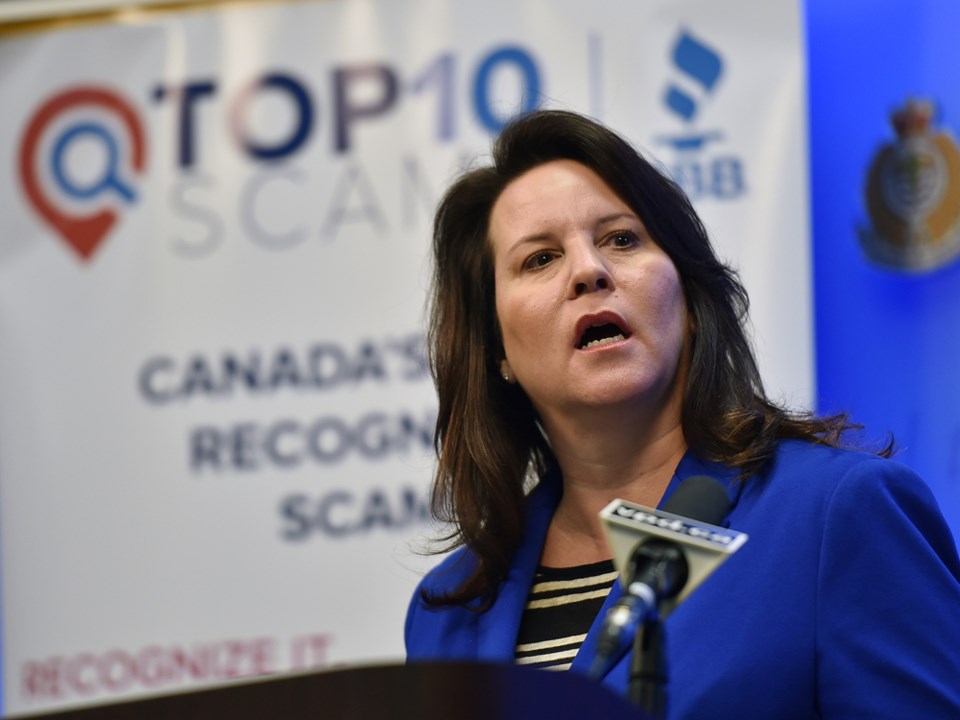That long lost Nigerian brother you previously knew nothing of is getting smarter.
It’s not a good thing.
The Better Business Bureau (BBB) released its top 10 scam list for 2018 on Friday morning, and Canadians were duped out of more than $121 million last year thanks to dating scams, bogus skin cream ads and shoddy advice from otherwise trustworthy sources.
When taking into account that only five per cent of fraud cases are reported, the more realistic annual tab is closer to $3 billion, according to BBB president Danielle Primrose.
“Underreporting still continues to be a serious concern as many victims are too ashamed to come forward, they don’t feel that it would help and they simply may not know where to turn for help,” Primrose said.
One of the more disconcerting pieces from the 45-minute press conference was the fact that Canadians are increasingly falling into “trust traps.” It’s a duplicitous phenomenon much like the sharing of sketchy articles online that have no basis in fact — a family member or friend gets conned, passes along the con as reputable and the process spreads like the flu.
“This method of spreading a fraud often works because if someone you trust brings you an investment, you let your guard down. You rely on that trust and you ignore the other things that you need to consider,” said Doug Muir, director of enforcement with the B.C. Securities Commission.
Romance scams came in as the worst offender on the list, costing victims $22.5 million in 2018. That infuriated “CRA agent” who tried to pressure you into payment helped income tax extortion land in the second spot (more than $6 million lost), followed by online purchase scams (more than $3.5 million lost).
Employment and phishing scams rounded out the top five, while con jobs around subscriptions, tech support and home improvement were also in the top 10.
Muir stressed the universal principle of “if it sounds too good to be true, it is,” while cautioning consumers to educate themselves, ask questions and seek out advisors.
There’s also a need to lose the shame and report incidents to the BBB or other applicable authorities as soon as they happen.
“If we learn early enough about a Ponzi scheme for example, we can stop a $10,000 scheme from becoming a $100 million scheme,” he said.



